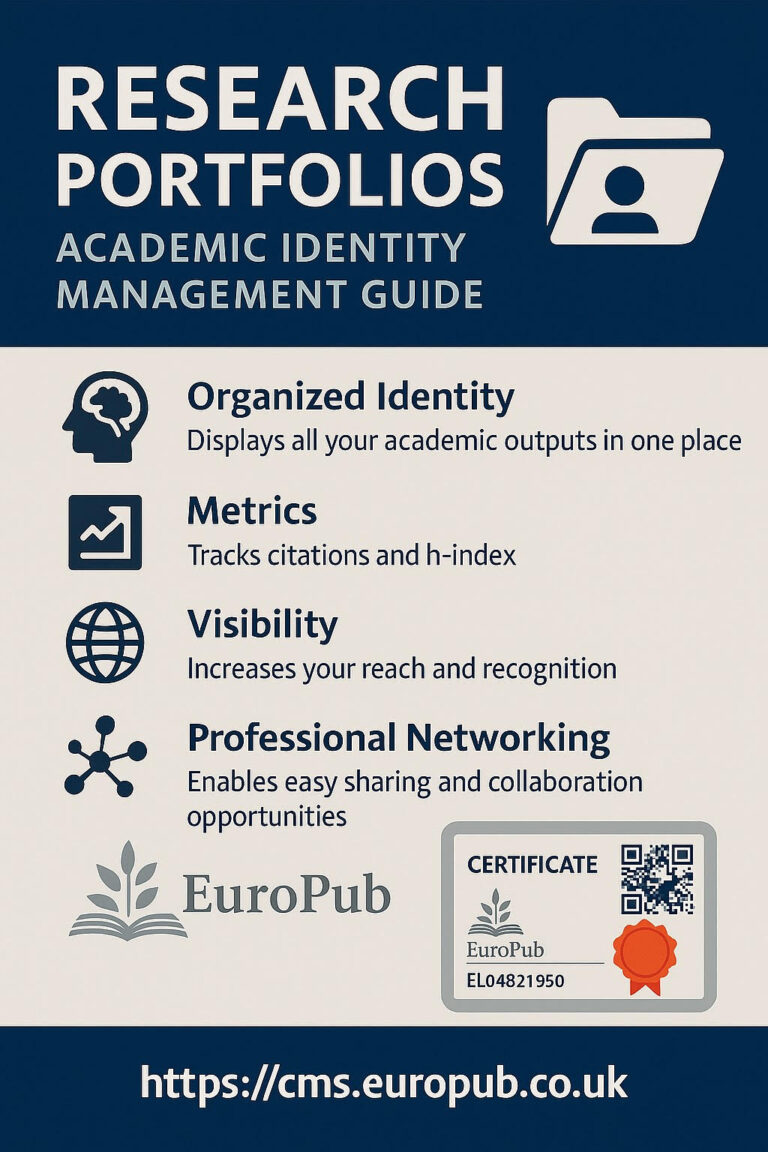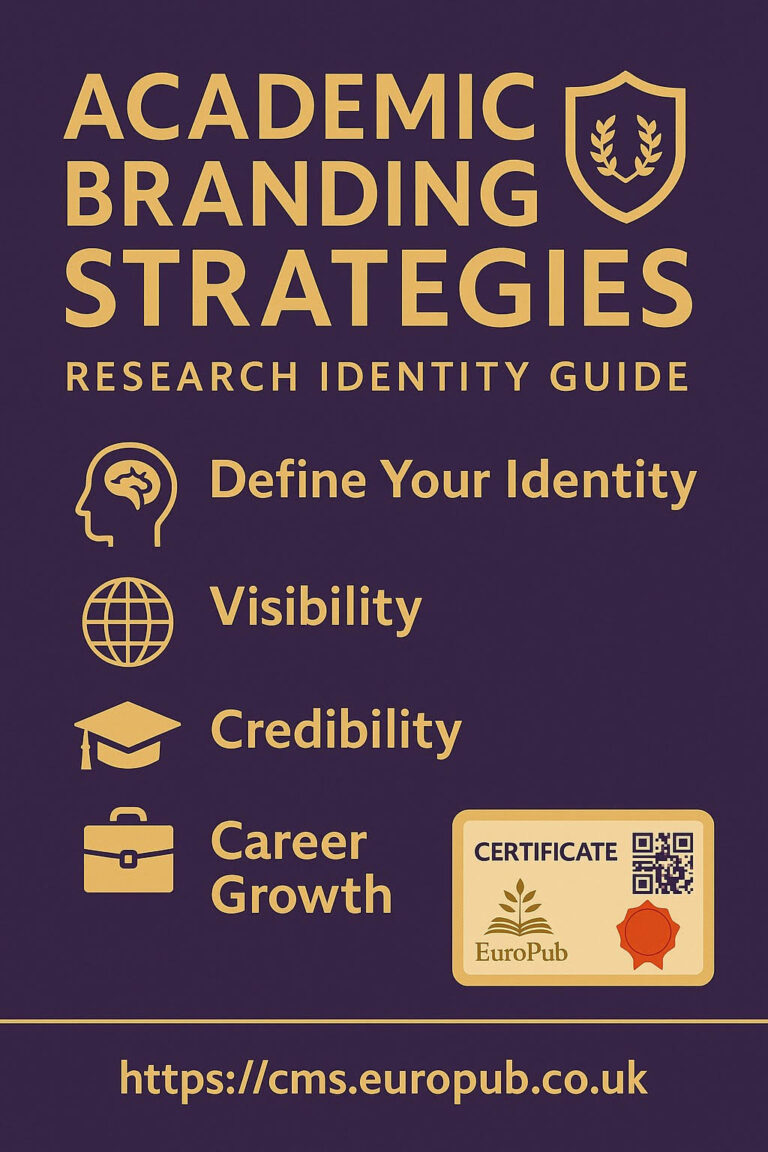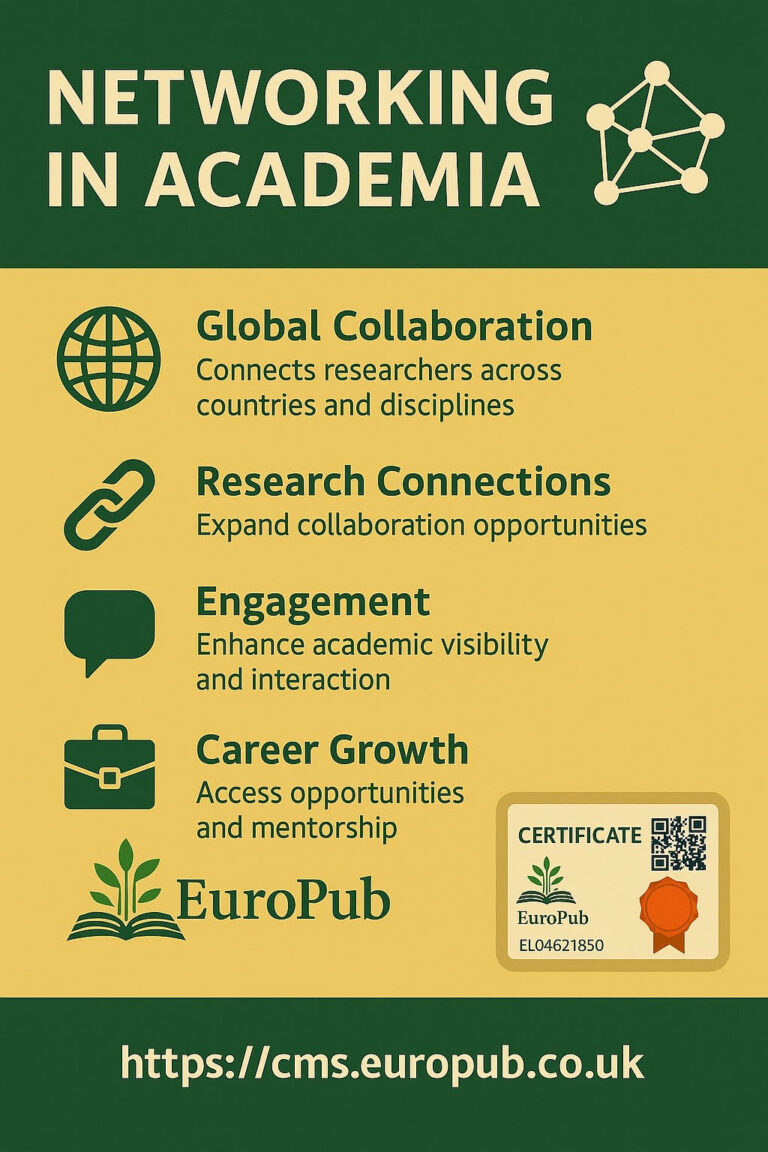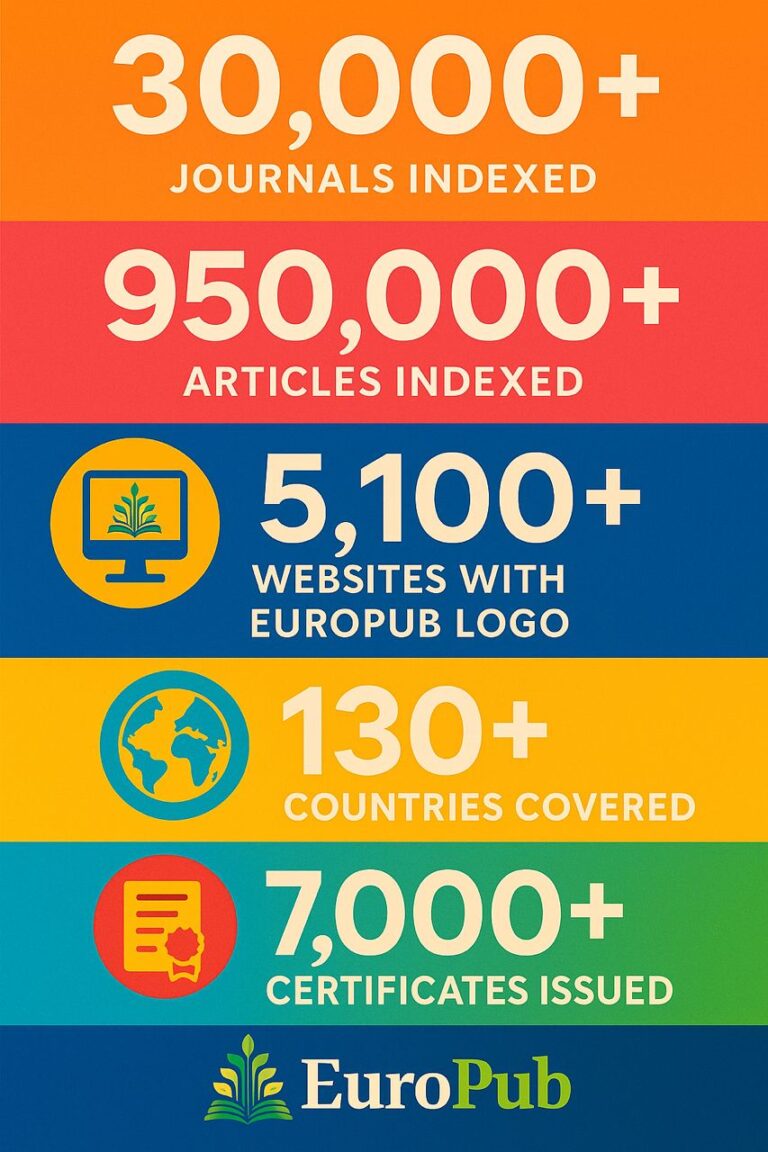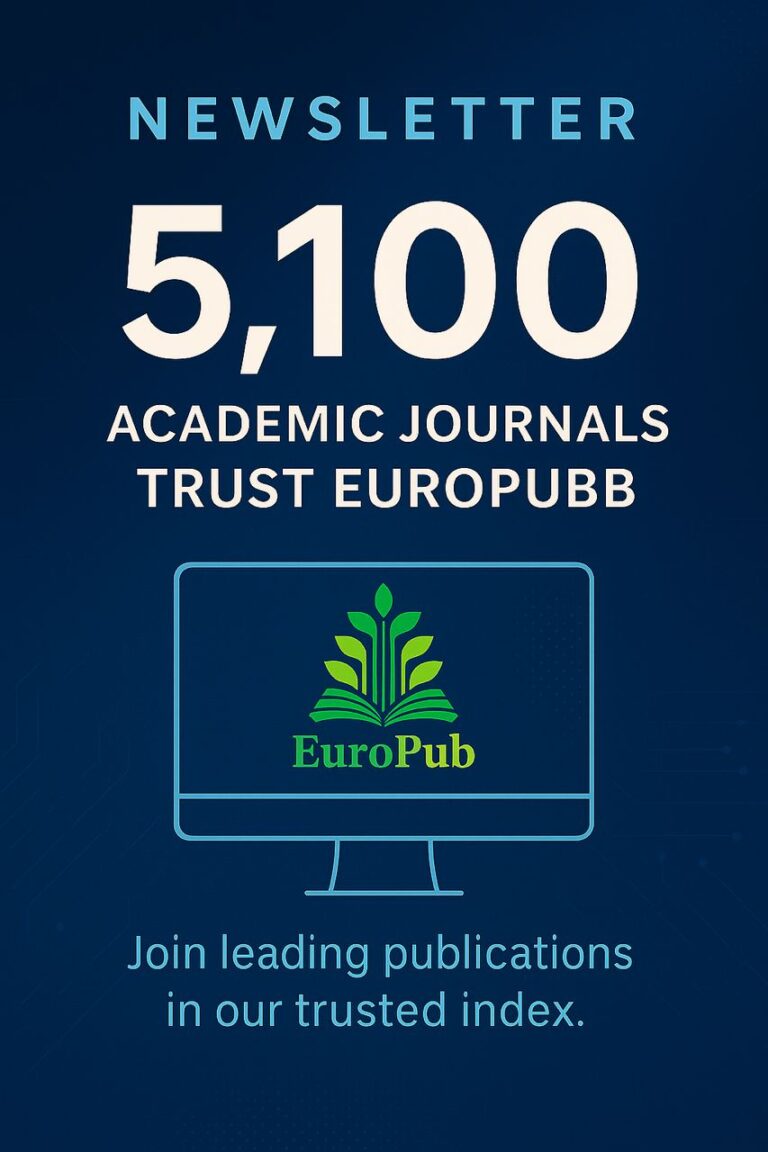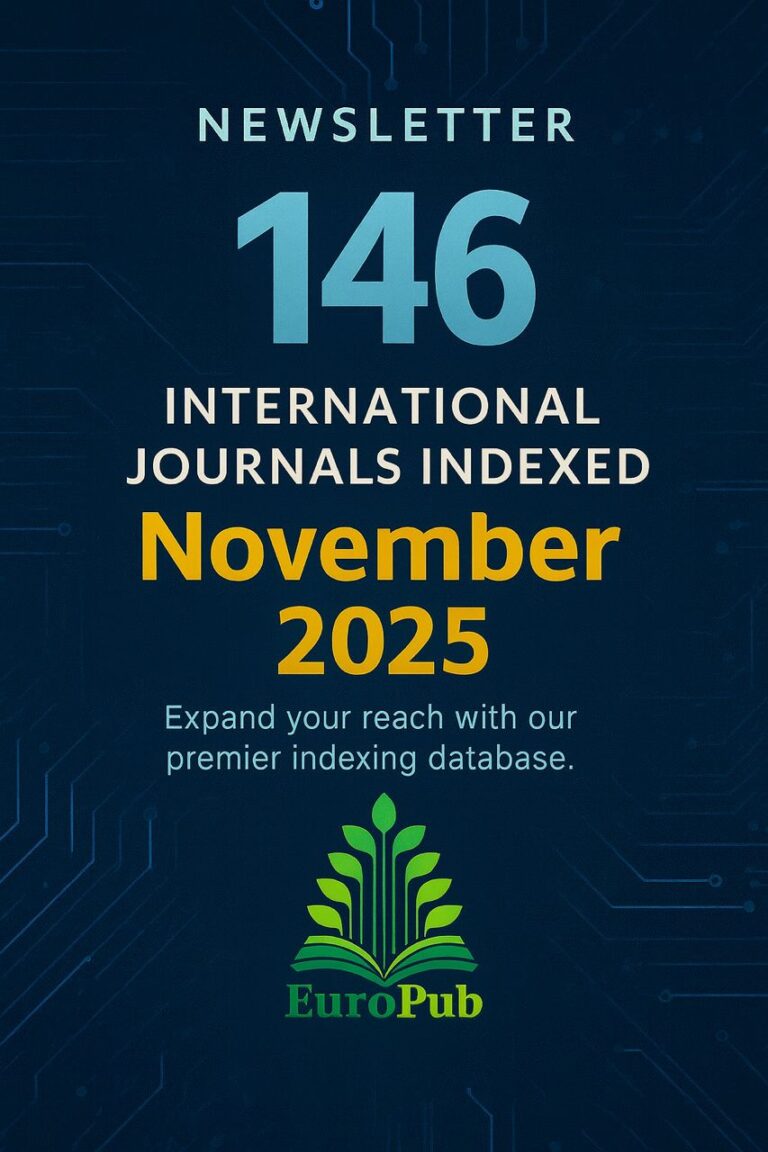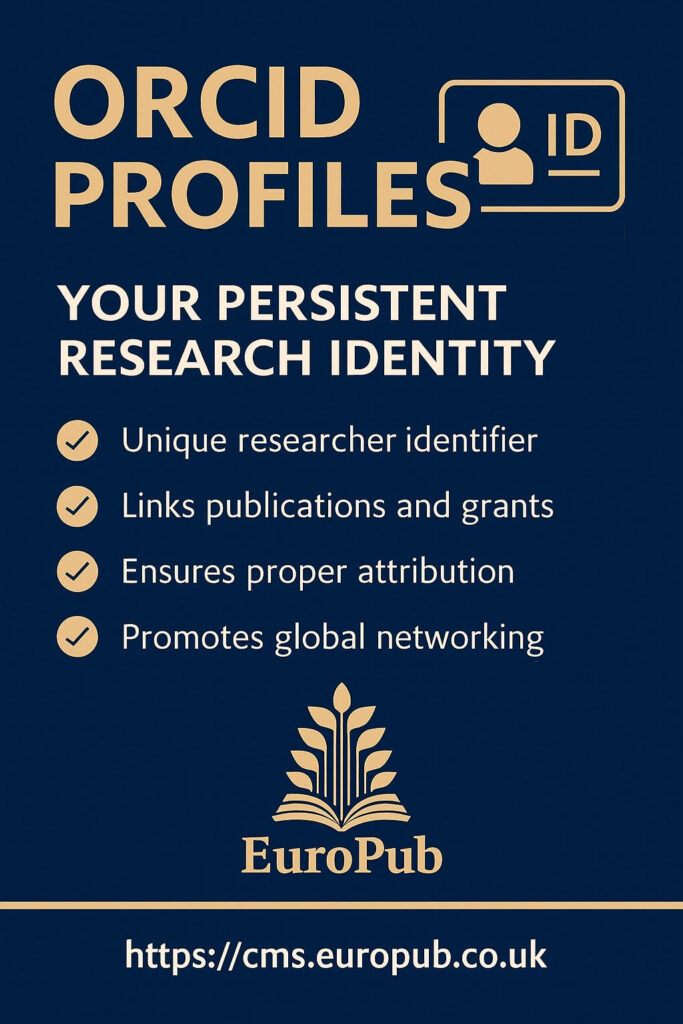
 What is ORCID?
What is ORCID?
ORCID (Open Researcher and Contributor ID) is a globally recognized, 16-digit alphanumeric code (e.g., 0000-0002-1825-0097) that uniquely identifies individual researchers and contributors to scholarly communication.
It provides a persistent digital identifier that distinguishes you from other researchers—even those with similar names—and connects your professional activities across journals, institutions, and countries.
 Official website: https://orcid.org
Official website: https://orcid.org
 Why ORCID Matters
Why ORCID Matters
| Purpose | Description | Benefit |
|---|---|---|
| Unique ID | Prevents name confusion among researchers | Maintains your distinct academic identity |
| Global Recognition | Used by 13M+ researchers and 10,000+ institutions | Trusted by publishers & funders |
| Automatic Integration | Connects to Scopus, Web of Science, CrossRef, Publons, Europub CMS | Simplifies academic workflows |
| Permanent Record | Stores publications, grants, datasets, affiliations | One reliable professional record |
| Compliance | Required by many journals and funders (e.g., Elsevier, Springer, NIH, ERC) | Ensures eligibility and transparency |
 How ORCID Works
How ORCID Works
- Create your ORCID iD: Register free at https://orcid.org/register
- Link to your institution: Add your university or organization as affiliation.
- Add publications: Automatically or manually import from CrossRef, Scopus, or Europub.
- Connect with publishers: Link ORCID to submission systems (ScholarOne, Editorial Manager).
- Use in grant applications: Many funders (NIH, Horizon Europe) require it.
- Display on CV & websites: Add your ORCID badge to email signatures, websites, and profiles.
 Core Sections of an ORCID Profile
Core Sections of an ORCID Profile
| Section | Example Content |
|---|---|
| Personal Information | Name, email, biography, keywords |
| Education & Employment | Institutions, positions, degrees |
| Publications / Works | Articles, datasets, software, preprints |
| Funding | Grants and awards |
| Peer Review | Verified reviews via Publons |
| Affiliations | Institutional and organizational memberships |
 Integration Across Platforms
Integration Across Platforms
ORCID integrates seamlessly with:
- Scopus Author ID – Elsevier Scopus
- Web of Science ResearcherID – Publons
- CrossRef & DataCite – for DOI assignment
- Europub CMS – for certificate verification: https://cms.europub.co.uk
- Google Scholar – synchronization of articles
 Benefits of Maintaining an ORCID Profile
Benefits of Maintaining an ORCID Profile
- Centralized research visibility
- Verified record of contributions
- Easier submission and grant workflows
- Global discoverability and citation tracking
- Persistent identifier for lifelong academic record
 For Journals & Publishers
For Journals & Publishers
- Auto-populate author metadata
- Streamline peer-review invitations
- Verify authorship and reviewer identities
- Integrate with submission systems for authentication
 FAQ – ORCID Profiles
FAQ – ORCID Profiles
1. What does ORCID stand for?
Open Researcher and Contributor ID.
2. Is ORCID free?
Yes, creating and maintaining an ORCID account is completely free.
3. How do I get an ORCID ID?
Go to https://orcid.org/register, fill in your name and email, and create a password.
4. Is my ORCID profile public?
You control privacy. Each item can be set as Public, Trusted Parties, or Private.
5. Can I link my ORCID to Google Scholar or Scopus?
Yes — many systems automatically sync data using ORCID’s API.
6. What if my name changes?
Your ORCID remains the same permanently, even if your name or institution changes.
7. Can I include my ORCID on my CV or website?
Yes — use the ORCID icon and link your profile directly.
8. How is ORCID different from ResearchGate or Academia.edu?
ORCID is not a social network; it’s an open standard identifier focused on verified scholarly records.
9. Do journals require ORCID?
Yes, many top journals (Elsevier, Springer, Wiley) now require ORCID for all corresponding authors.
10. Can I import publications automatically?
Yes — through CrossRef, Scopus, DataCite, and Europub CMS integrations.
11. How does ORCID prevent fraud or duplication?
It uses verification through connected systems (CrossRef, institutional emails, DOI-based metadata).
12. Can I use ORCID to link with Publons?
Yes — all peer reviews verified by Publons appear in your ORCID record.
13. Can institutions use ORCID data?
Yes, institutions can track research output and maintain staff repositories through ORCID’s APIs.
14. What happens if I leave my university?
Your ORCID remains yours for life — independent of any institution.
15. Does ORCID help with certificate validation?
Yes, Europub CMS can issue certificates with ORCID-linked author verification.
 Useful Resources
Useful Resources
 Official ORCID: https://orcid.org
Official ORCID: https://orcid.org CrossRef Integration: https://www.crossref.org
CrossRef Integration: https://www.crossref.org Web of Science: https://www.webofscience.com
Web of Science: https://www.webofscience.com Europub Certificates: https://cms.europub.co.uk
Europub Certificates: https://cms.europub.co.uk ORCID Tutorials: https://info.orcid.org/documentation
ORCID Tutorials: https://info.orcid.org/documentation
